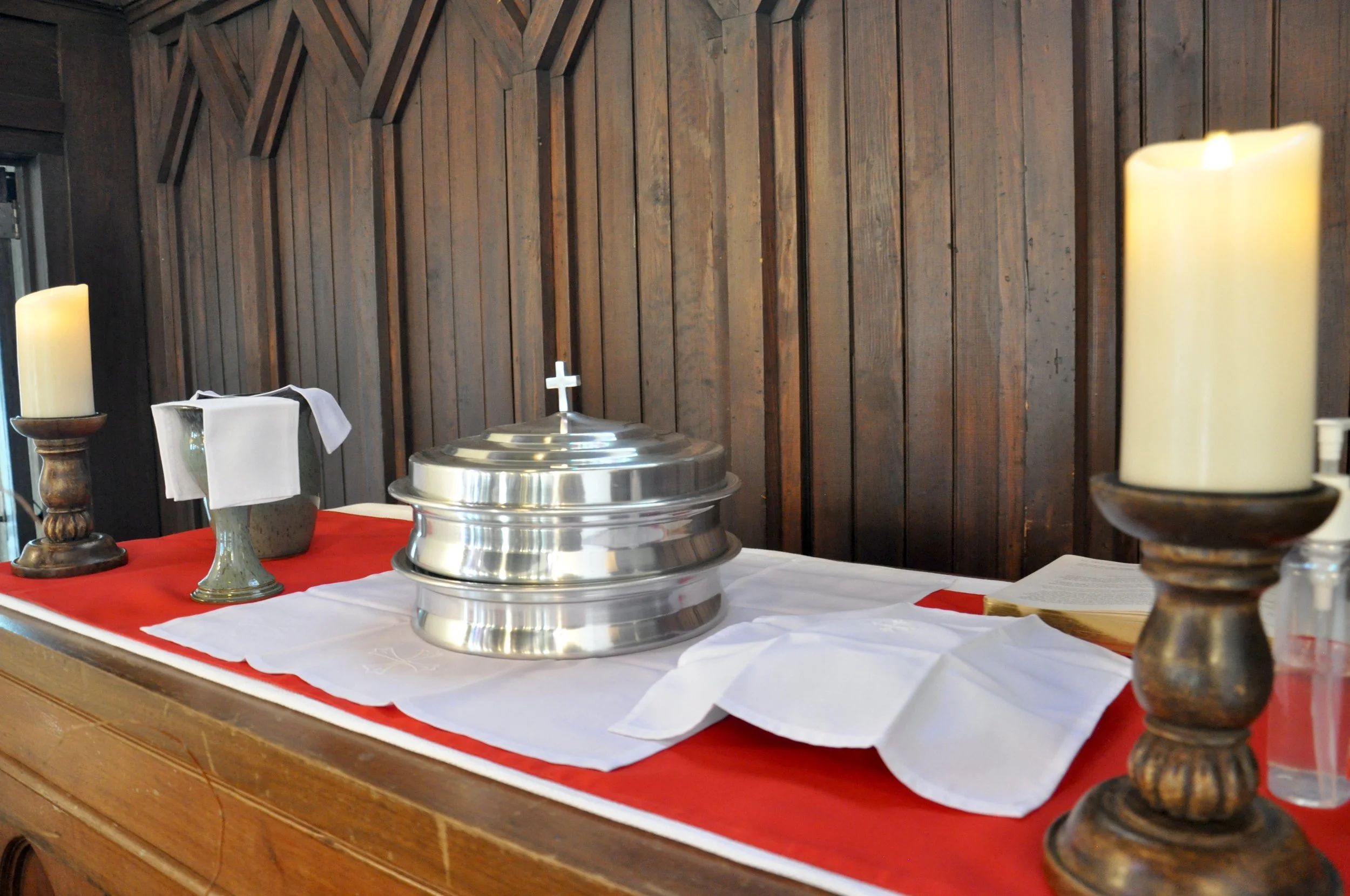This is one of those verses where I want to lick my finger, make a mark in the air and ‘count it’. Peacemaker. Got it. I can do that. And it is especially ‘easy’ when we think of peacemaking as being something required during times of great tumult - wars, family feuds and soap opera-type marital strife. But when Jesus whispered these words to His friends on that hillside, He didn’t say, ‘When you are on the verge of divorce, be a peacemaker’ or ‘during wartime, seek peace’. In fact, He said it blankly, as if it were a way of life. Everyday life. And to make this is even harder, He didn’t say “Be a peacemaker” which would give us ‘do-ers’ something to check off. He said, blessed ARE the peacemakers. His words make me think of peacemaking not as crisis management but more as a way of life. To add to this idea of peacemaking, He promises happiness to those who live as peacemakers – every day, all day. So, I am left asking myself, how can I live a life as a peacemaker?
As I have chewed on this, I have felt more and more exposed. I see how much I want to be right, I see how much I want to win, I see how much even my ‘good’ motives are bound by things going according to “my” plans. If I honestly examine my calendar, my conversations, and my thoughts, I do not see a life lived making peace. Instead, I see a BATTLE PLAN. I humbly confess that the blueprint of my mind and heart reveals a strategy complete with weapons of mass persuasion through which I intend to grow my faith, teach my kids, bless my husband, serve my community, and enjoy my life. And if there is an interruption to my battle plan (usually in the form of a person), do you know what I do? I get huffy and puffy. I might make snide comments. I may choose to arrogantly dismiss that person. I may manipulate the situation, so it works better for me and my people. I avoid her or him entirely. Who can live as a peacemaker when they wake up each morning armed with an iphone, an inked-in calendar, a gassed up Suburban and a Battle Plan bent on one mission: getting my life done according to my well-intentioned but enormously self-serving plan? Pardon me as I experience extreme shock and awe at my war-mongering tactics.
So, how do I unpack this? This is a life long practice. Asking me to engage every interaction with my husband (nearly perfect though he is), my middle school son, my in-laws, the carpool line, and my community from a place of promoting peace rather than executing my well-thought through and good intentioned plans – well, this requires some sort of radical REBOOT/RESET of my… everything.
Lindsay taught this lesson to our Monday Manna group and gave us so much wisdom on what this looks like lived out in our lives. What I have gone back through again and again is this practical list of ways we can seek peace in our daily lives. This is big stuff and requires radical faith to believe that God does indeed have our best interests at heart, that He sees what is fair or unfair, and that He will bless us and prosper us as we surrender our Battle Plans. The truth is, most days I don’t have that kind of faith. Lucky for us, we don’t have to. There are no battle plans required in growing faith. We cannot muster up our own jumbo-sized faith. He shows us where we need it, so that we will ask for it. He Himself is the Author of our faith. And so, we must return to Him – face to face, heart to heart – and ask Him for it.
Father, help my unbelief. Take my pea-sized faith and grow it. I want to live as a peacemaker but it feels foreign in my day-to-day life. Help me see Your way, and create in me a desire to live according Your plan. Amen
8 Qualities of a Peacemaker:
1. Don’t speak. Overlook an Offense. Our words are frequently the fuel for conflict. Many disputes are so insignificant that they can be resolved by quietly overlooking an offense. This is a form of forgiveness, and involves a deliberate decision not to talk about it, dwell on it, or let it grow into pent-up bitterness or anger.
2. Realize our first inclination is to direct the blame (point our finger) at someone else. Matthew 7:5 “Get the log out of your own eye.” Ask yourself ‘what have I done to fuel this conflict?’
3. Reconcile. It is always our responsibility to humbly go and seek reconciliation. Matthew 5:23 and 18:15. Bridge the gap no matter who caused it.
4. Peacemaking can be laying down rights or exercising rights. Pray about when it is a time to lay down our rights and when is it the time to exercise our rights.
5. When we have been offended, find the positive and go out of your way to make peace.
6. Forgive. Even though Christians have experienced the greatest forgiveness in the world, we often fail to show that forgiveness to others. (Col. 3:12-14).
7. Diffuse peace wherever we are, out of the endless peace God has given us. Be selfless, lovable, approachable. Think of those scented diffusers that change the fragrance of a room. Diffuse grace and peace as you go about your day.
8. Accept differences in our world. Differences provide beauty, but also conflict. Model kindness and charity across deep differences without sacrificing our faith.




